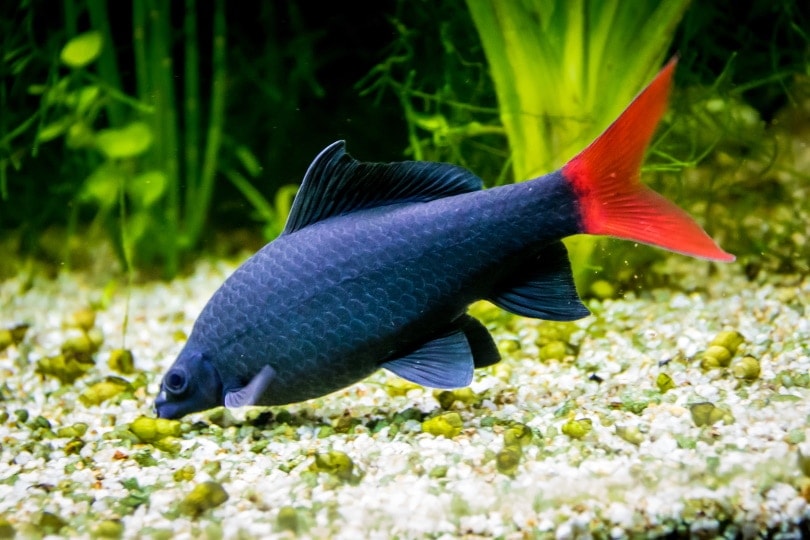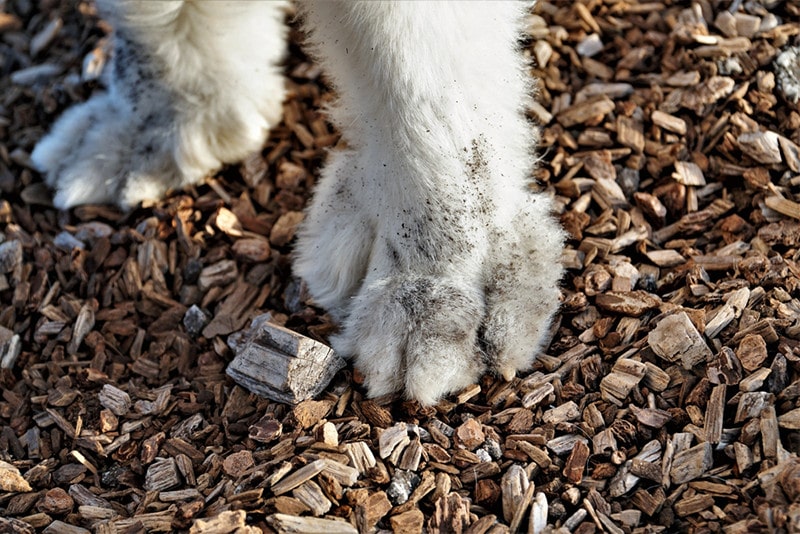Can Dogs Eat Bugs? Keep Your Dog Safe!

Updated on
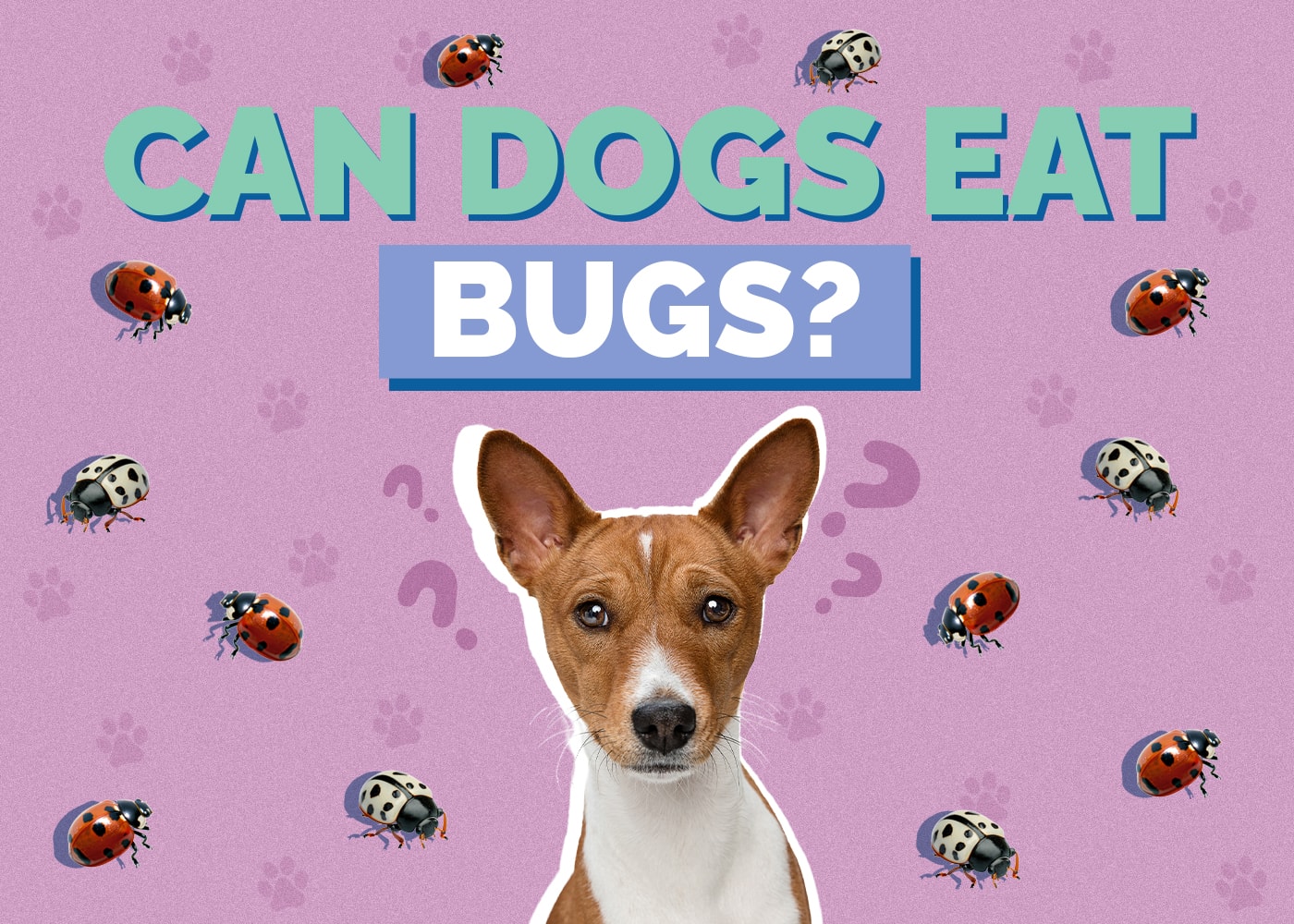
When it comes to dietary choices for our beloved furry friends, it can be difficult to know what’s best. While many pet owners are well aware of the benefits of a balanced diet of high-quality dog food, some may not realize that including insects in their pet’s diet can be beneficial as well. Or maybe your dog ate a bug while outdoors and you want to know if it’s safe. In recent years, the concept of entomophagy (the practice of eating insects) has gained popularity, and this dietary choice is actually now being looked at for our canine companions as well. So, can dogs eat bugs and are they healthy for them? In short: Yes, they can, but there are some restrictions you should know about. Let’s discuss.
What Insects Can Dogs Eat?
Yes, believe it or not, dogs can actually eat some insects. Who knew, right? The good news is that there are plenty of insects that are safe to feed to dogs. While some insects are definitely best avoided when feeding your pup, a wide variety can be included in their diet.
Not only are several types of insects safe for dogs, but many are also packed with nutrition that can be beneficial for your pet’s health. Here are some of the most common insects that you can feed to your pup.
Crickets
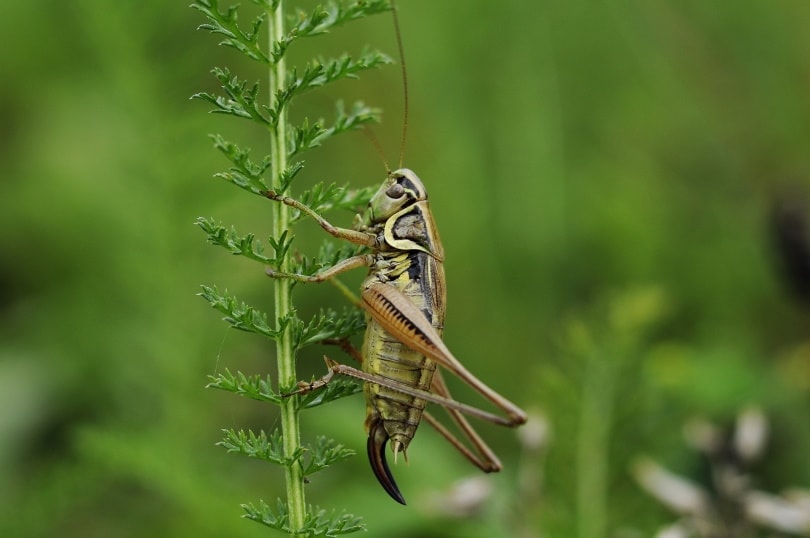
Crickets are one of the most popular insects that people feed to their dogs, and for good reason. These edible bugs are full of protein, calcium, and other essential nutrients that can be beneficial for your dog’s health. Plus, crickets are widely available and fairly inexpensive to purchase, making them a great choice for those looking to feed insects to their dog (you can easily buy them at most pet stores).
Mealworms
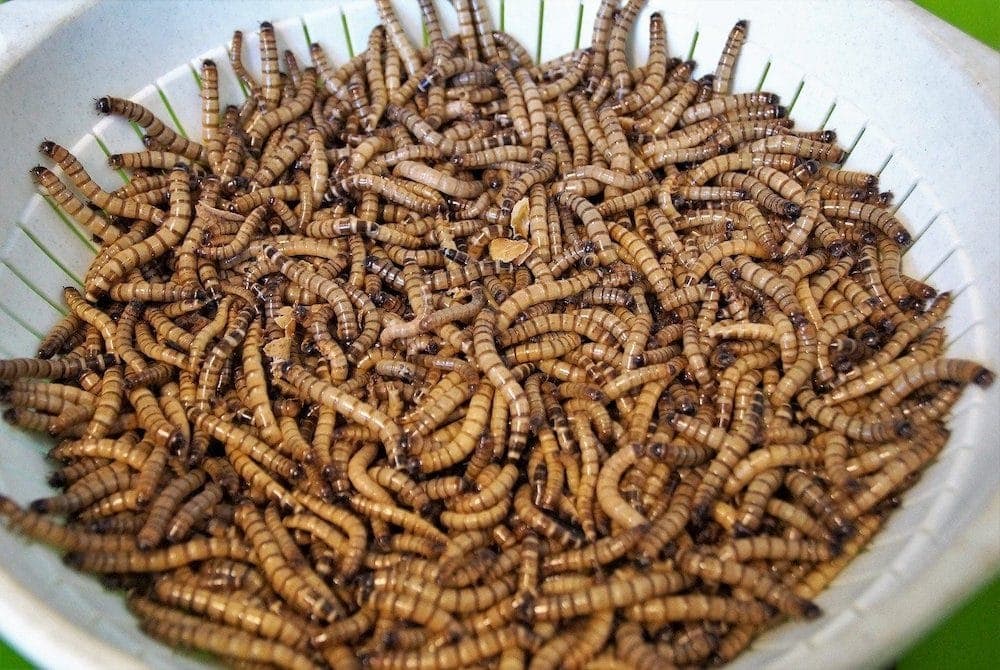
Mealworms are a high-quality protein source that is excellent for dog diets. They offer plenty of essential nutrients, including iron and selenium, which are important for the health of both humans and dogs. Plus, they’re low in fat and calories so they’ll help reduce your pet’s overall caloric intake.
Waxworms
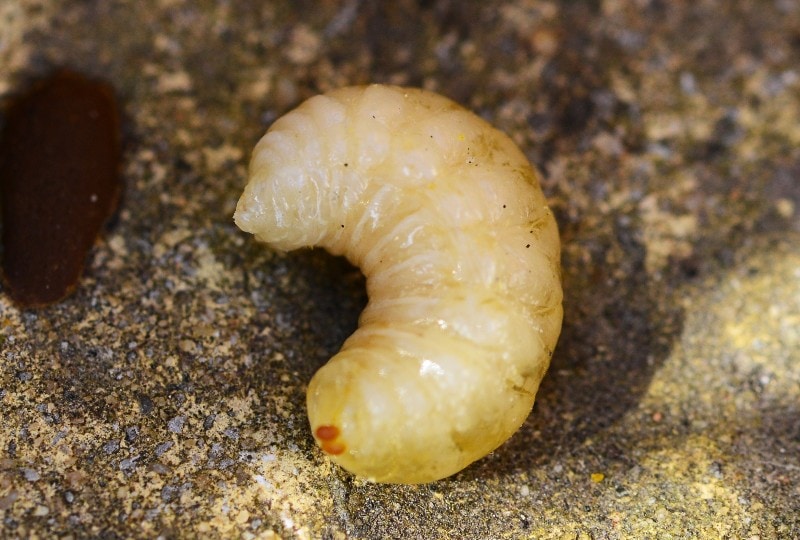
Waxworms are small, shiny worms that feed on leaves and other plant matter. They’re high in protein and some vitamins and minerals (like vitamin B12), so they make a great addition to your dog’s diet if you want him or her to stay strong and healthy overall. However, they are high in fat, so it’s best to not feed your dog these worms regularly.
Grasshoppers
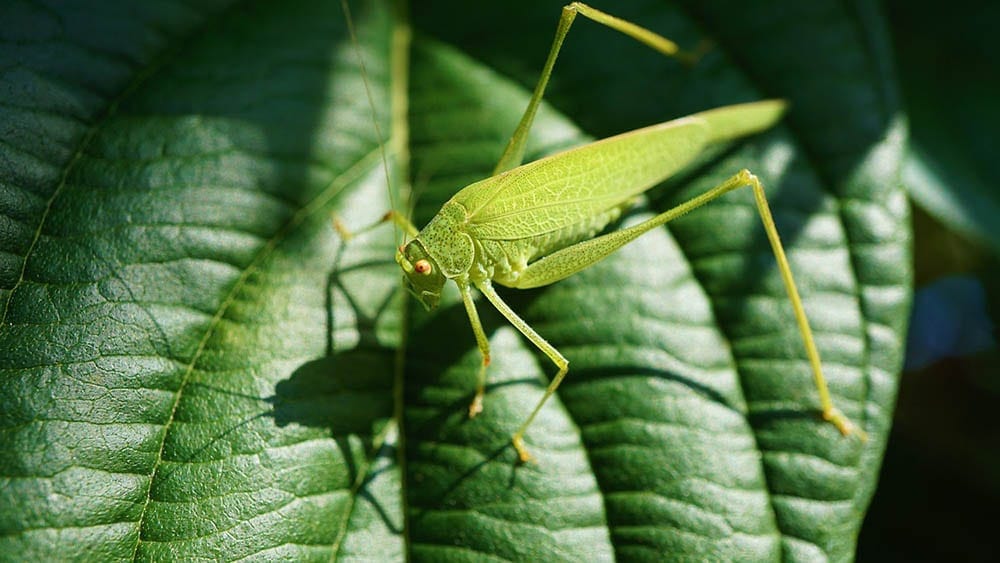
Dogs can eat grasshoppers, but you’ll need to exercise some caution when feeding them to your pup.
Why? Because they can carry roundworms or parasites that could be harmful, depending on the habitat of the grasshoppers. They can also carry pesticides or fertilizers that can cause serious health problems for your dog. Although pesticides are intended to kill insects, it is unlikely your dog will be ill from them. So can they eat them, yes. But it should be in moderation.
Benefits of Feeding Dogs Insects as Snacks
There are many benefits to feeding insects to your dog, and many of these are the same reasons why humans have been eating insects for millennia. Insects are not only packed with protein, but they also contain essential nutrients like calcium, iron, and vitamin B that are necessary for optimal health. In addition, many insects are high in essential fats like omega-3 fatty acids, making them particularly beneficial for dogs with sensitive digestive systems.
Feeding insects to your dog can also be beneficial for the planet since many are cultivated on compost, making them sustainable and eco-friendly. Many insects also contain chitin, which is beneficial for strengthening your dog’s immune system and helping fight harmful bacteria and fungi.
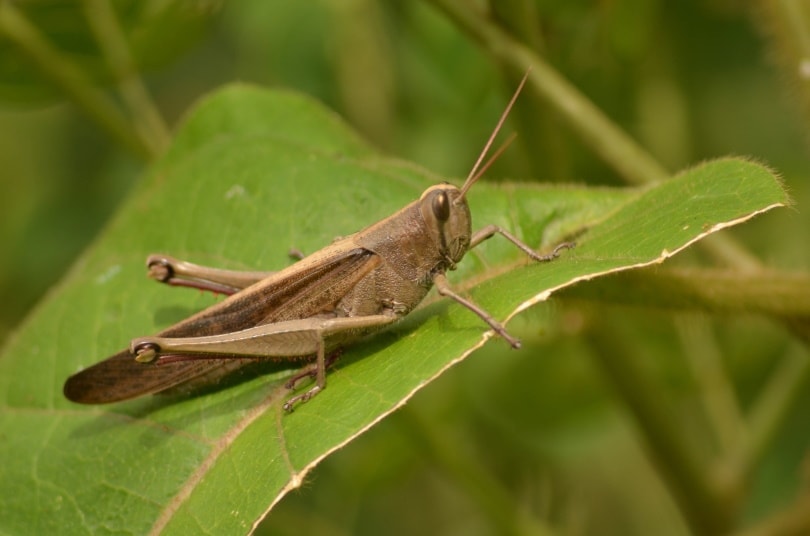
Insects to Avoid Feeding to Dogs
Some insects should never be fed to dogs, nor should you allow your dog to eat them if they come across one. Let’s take a look at them.
- Ladybugs: These can irritate your pup’s mouth and tongue, and even cause ulcers from their discharge.
- Roaches and Fleas: These pests can actually transmit intestinal parasites to pets if eaten by dogs.
- Spiders and Wasps: Both of these bugs can transmit their venom to your dog if they’re eaten.
- Stink Bugs: These bugs can affect your dog’s GI system and cause serious irritation and other issues.
- Snails, Earthworms, and Slugs: These worms can expose your dog to worms which can be very dangerous for them.
Keep An Eye Out for Parasites
The last thing that your dog needs are parasites from something that it’s eaten – something that can necessitate a trip to the vet. Two common parasites are tapeworms and stomach worms.
Tapeworm
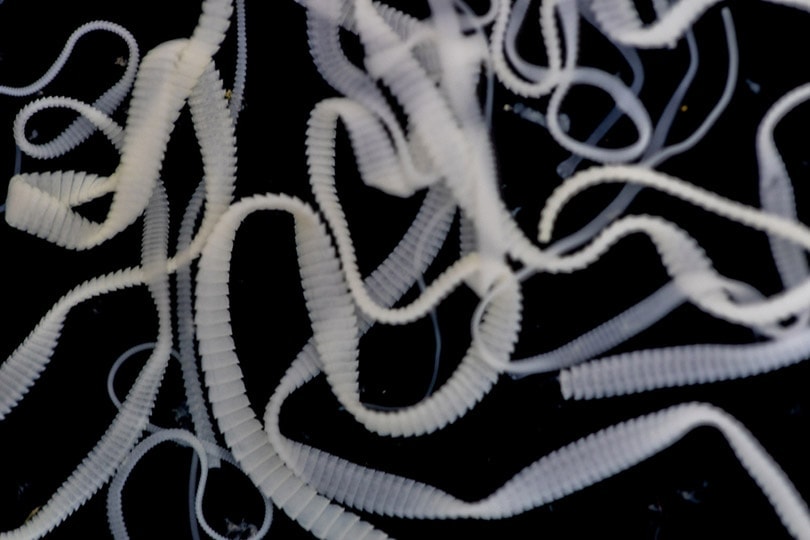
Tapeworms are common parasites in dogs and cats. They can be contracted by dogs who eat fleas that are carrying the parasite. Flea prevention is important for your pet. Tapeworms aren’t life-threatening and can be treated easily with over-the-counter pills. Common signs include worms in feces, anal scratching/biting, and white worms around the dog’s anus.
Stomach Worms
Stomach worm infection (aka “Physaloptera”) is another parasite that can cause physical upset with your pup. This parasite is found in cockroaches and other insects that eat feces. Your dog may be infected by one or more worms in its stomach. Although your pet may not show any symptoms, chronic or acute vomiting is the most common sign.
Tips for a Healthy Dog Diet
Keeping your dog happy and healthy is one of the most important things you can do as a responsible pet owner. The best way to ensure that your canine companion is getting the nutrition they need is to make sure they’re following a proper diet. Let’s look at some ways to do it.
Understand Your Dog’s Nutritional Needs
Dogs are omnivores and will naturally eat both meat and grains. This means that humans can get many nutrients they need from a plant-based diet, but dogs are going to need some animal (protein-based) products in their diets to thrive. The best dog food for your pup will depend on their age, breed, health issues, and other factors like their environment and lifestyle. Before you decide on a diet for your dog, make sure you understand their nutritional needs.
For example, a small Chihuahua is going to need fewer calories per day than a larger dog like a Labrador or a Pitbull. On average, you can expect to feed your dog anywhere from 2 to 3 meals a day, including snacks. Pregnant dogs or dogs that are nursing may need a special diet to ensure their pups are getting the nutrients they need to grow strong spines and bones.
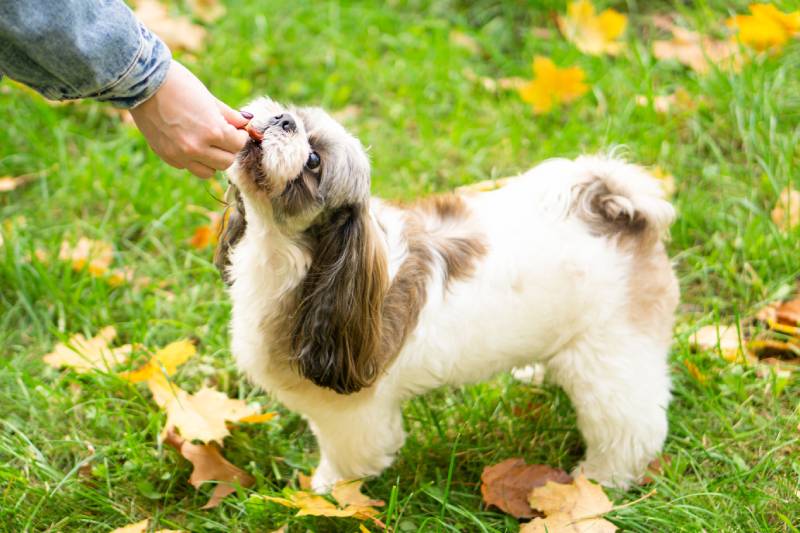
Know How Much Food to Feed Your Dog
As with any other person, you’ll want to make sure you’re not overfeeding your dog. This can lead to obesity, which can cause a variety of health issues and diseases like joint pain, arthritis, and diabetes. To figure out how much food your dog should be eating, you’ll want to first know your dog’s ideal body weight.
You can find this by using a simple online dog body-weight calculator or by consulting a veterinarian. Once you have your pup’s ideal body weight, you can use that to help figure out how much food they should be eating. There are a few different ways to do this. You can feed your dog based on calories, based on portions, or by using a portion-controlled dog bowl.
Feed Your Dog at Regular Intervals
Like us, dogs generally thrive best when they’re eating several small meals throughout the day rather than a single large meal. This will help them manage their blood sugar and avoid overeating. Put simply, it’s better for their health. Many experts recommend feeding dogs 2 or 3 small meals each day. This will allow their bodies to use the nutrients they need more efficiently, and it will help keep them from gaining weight or overeating.
If you’re working with a particularly active dog (like Doberman or Lab), you may want to feed them more frequently to make sure they’re getting the energy they need. In general, though, 2 or 3 small meals per day is the standard recommendation for most dog owners.
This will also help keep your dog from becoming bored with its diet. If you feed your dog on a consistent schedule, they’ll get used to expecting food at certain times. This can help prevent unwanted behaviors like begging.
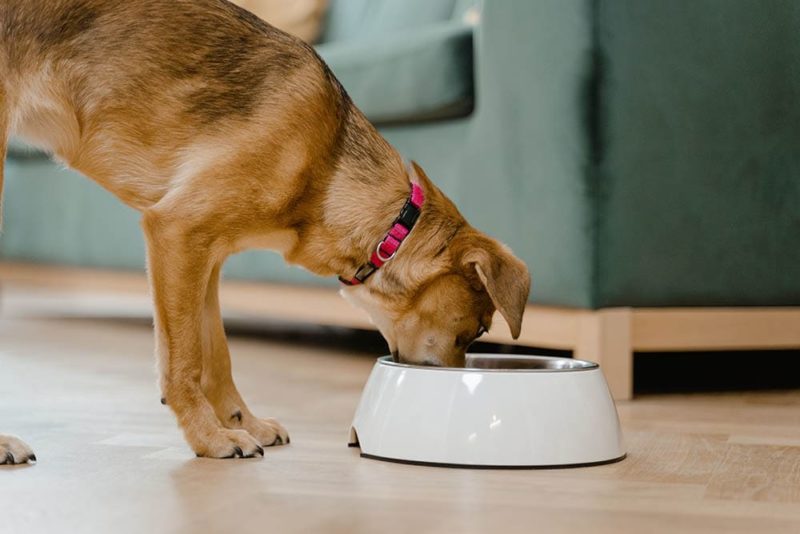
Avoid Unhealthy Snacks and Treats
It’s important to keep in mind that just because something can be healthy for humans, it doesn’t mean it’s necessarily good for dogs. This includes things like fruits, vegetables, and dairy products. While these items can be healthy for humans, they’re not necessarily great for dogs. While you may want to treat your dog with a few healthy biscuits or give them some veggies, it’s important to not overfeed them snacks that are high in fat or carbs. So, avoid fatty meats, and sugary or salty treats like cookies, bacon, and grains.
Add Supplements to Your Dog’s Diet
Adding supplements to your dog’s diet can help ensure that they’re getting the proper vitamins, minerals, and nutrients. You can give your dog a multivitamin to make sure they’re getting enough vitamins and minerals, and you can also give them extra vitamin and mineral supplements like calcium or iron.
Supplements like Vitamins C and E, Fish Oil, and Glucosamine are also popular. Dog food brands now commonly include things like vitamins and minerals, but there are also plenty of options that are designed specifically to supplement your pup’s diet. The easiest way to give your dog these supplements is to simply add them to their food during mealtime.
Wrapping Things Up
So, can your dog eat some insects? Yes, but you may want to consult your veterinarian beforehand just to make sure that it’s safe for your specific dog breed. Also, try to feed your dog insects only in moderation, as they can contain too much fat. The good thing about insects is that they’re fairly inexpensive, sustainable, and you won’t have any trouble finding them locally or online. Healthy snacks and a high-protein-based diet can ensure that your dog has all the nutrients that it needs each day.
See Also:
- My Dog Ate Maggots: Vet Approved Facts, Risks & What to Do
- Can Dogs Eat Cicadas? Vet Approved Facts & FAQ
Featured Image Credit: Elena Schweitzer, Shutterstock




